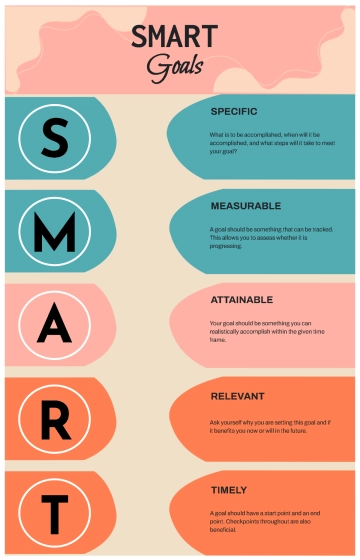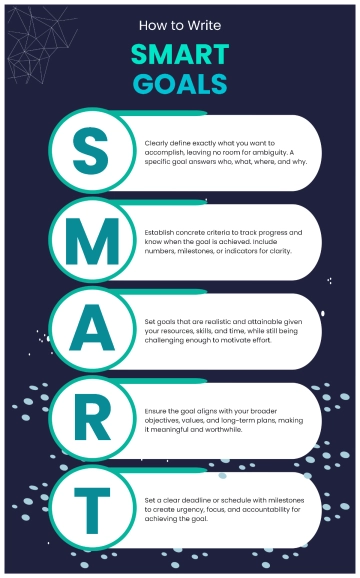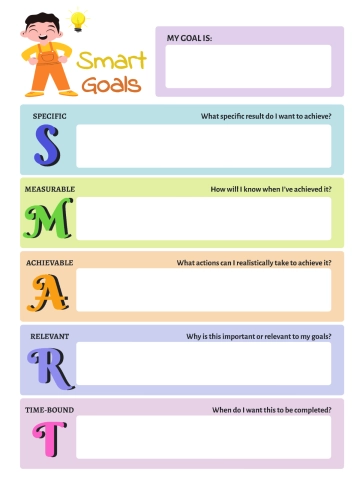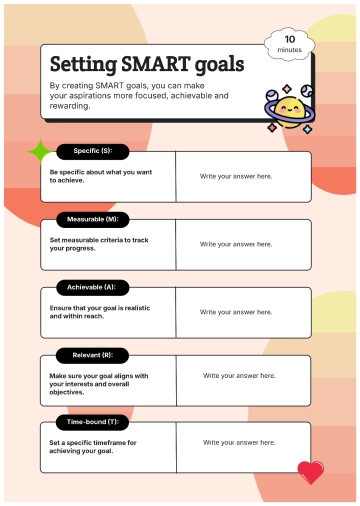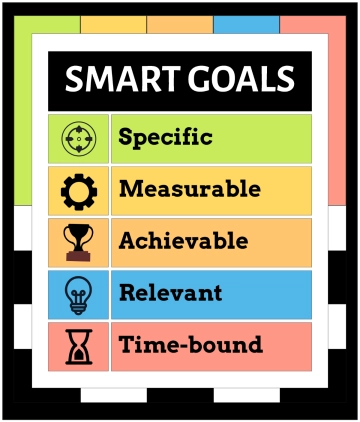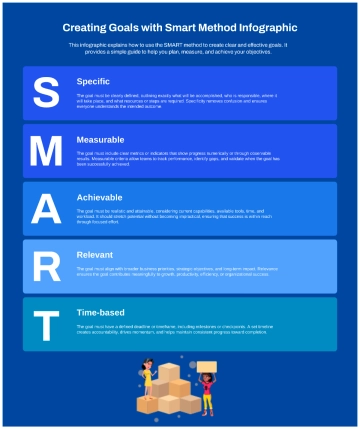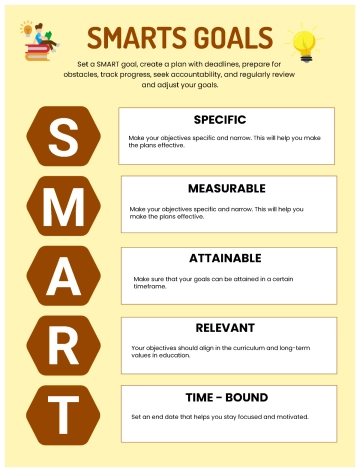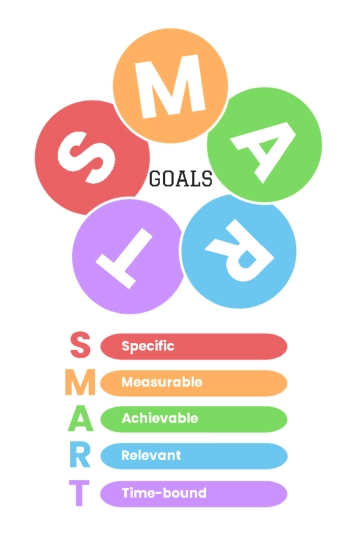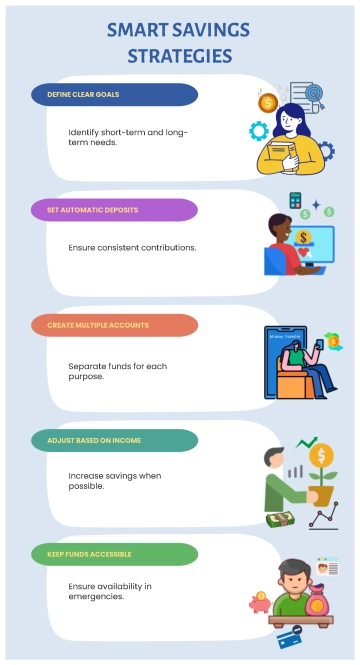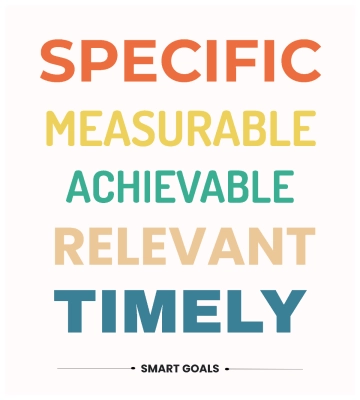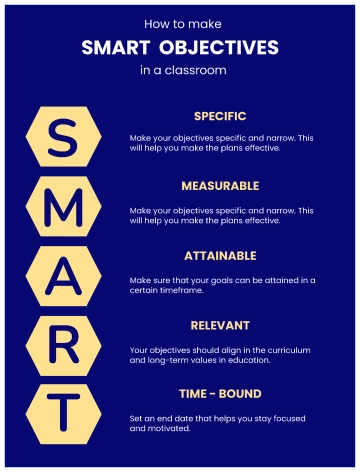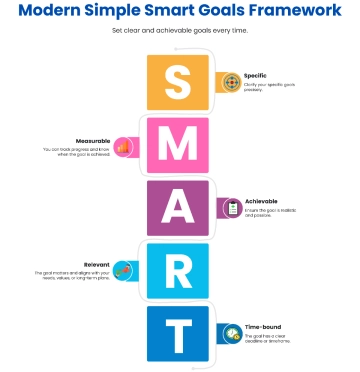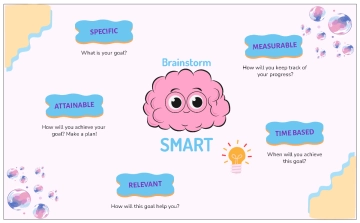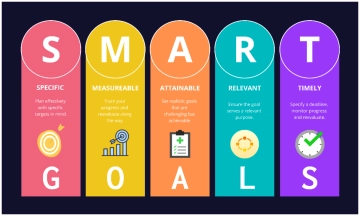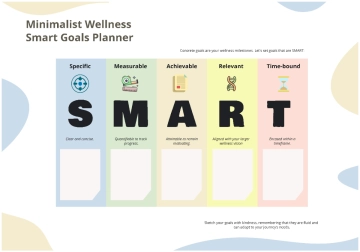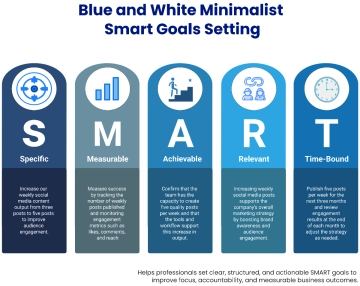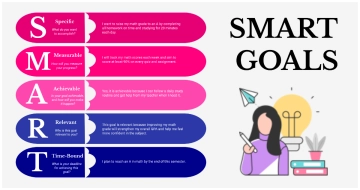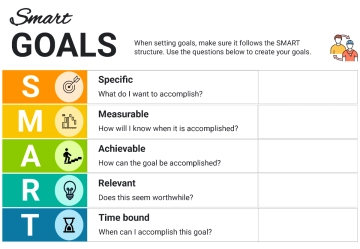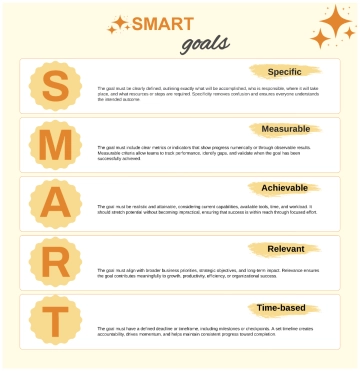Free SMART Goals for Nursing

Prepared by: [YOUR NAME]
A. SMART Criteria
SMART | Details |
|---|---|
Specific |
|
Measurable |
|
Achievable |
|
Relevant |
|
Time-bound |
|
B. Action Plan
Develop Training Materials
Responsibility: Training Coordinator
Deadline: [DATE]
Detail: Create comprehensive training materials on double-checking procedures and barcode scanning technology.
Schedule Training Sessions
Responsibility: Scheduling Officer
Deadline: [DATE]
Detail: Organize training sessions for all nursing staff, ensuring minimal disruption to patient care.
Conduct Training
Responsibility: Trainers
Deadline: [DATE]
Detail: Deliver training sessions and provide hands-on practice with new procedures.
Assess Competency
Responsibility: Training Coordinator
Deadline: [DATE]
Detail: Evaluate staff competency through practical exams and feedback sessions.
Monitor Error Rates
Responsibility: Quality Improvement Team
Deadline: Monthly
Detail: Review and analyze medication error reports to track progress toward the 20% reduction goal.
Adjust Strategies
Responsibility: Nursing Leadership
Deadline: Monthly
Detail: Assess progress, identify barriers, and adjust training or procedures as needed.
C. Accountability
Training Coordinator
Responsibilities: Develop materials, oversee training sessions, and assess staff competency.
Reporting: Provide monthly updates to Nursing Leadership on training progress and issues.
Scheduling Officer
Responsibilities: Coordinate training schedules and ensure all staff attend.
Reporting: Report attendance and scheduling issues to the Training Coordinator.
Quality Improvement Team
Responsibilities: Monitor and analyze medication error rates.
Reporting: Present monthly error rate reports and improvement recommendations to Nursing Leadership.
Nursing Leadership
Responsibilities: Oversee implementation, review progress, and make strategic adjustments.
Reporting: Review monthly reports and provide feedback to relevant teams.
D. Notes
Baseline Metrics: Ensure baseline error rates are accurately documented before initiating the goal-setting period.
Training Feedback: Collect feedback from staff on the training process to identify any areas for improvement.
Technology Issues: Address any technical issues with barcode scanning promptly to prevent disruptions in the error reduction process.
E. Additional Details
1. Resources Required
Training Materials: Prepare detailed guides and procedures.
Technology: Ensure barcode scanning equipment is fully functional and available.
Staff Time: Allocate time for training without affecting patient care.
2. Evaluation Criteria
Error Rate Reduction: Achieve and maintain a 20% reduction in medication errors.
Staff Competency: 100% of staff must demonstrate proficiency in new procedures.
3. Review Schedule
Monthly Reviews: Conduct regular meetings to review progress, discuss challenges, and adjust plans as needed.
Final Review: Assess overall success and areas for further improvement at the six-month mark.
- 100% Customizable, free editor
- Access 1 Million+ Templates, photo’s & graphics
- Download or share as a template
- Click and replace photos, graphics, text, backgrounds
- Resize, crop, AI write & more
- Access advanced editor
Enhance your nursing practice with Template.net’s SMART Goals for Nursing Template. Customizable and editable in our Ai Editor Tool, it’s perfect for setting objectives related to clinical skills, patient outcomes, and career advancement. This template is a valuable resource for nurses dedicated to delivering high-quality healthcare and achieving excellence in their profession.
